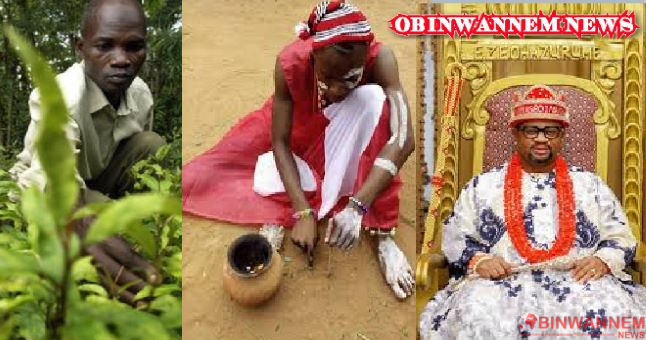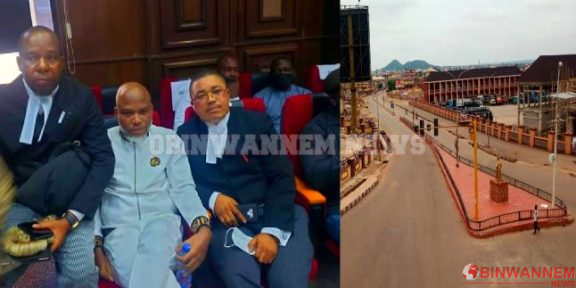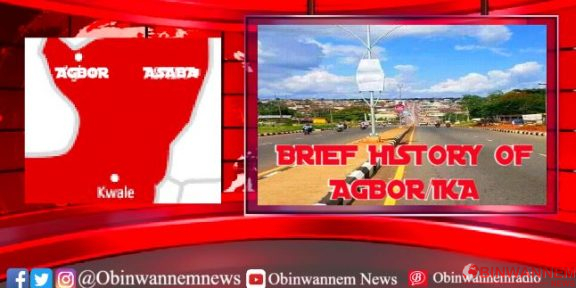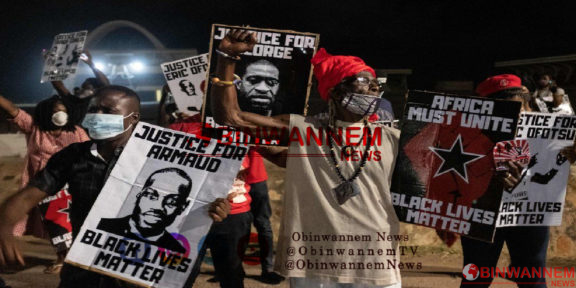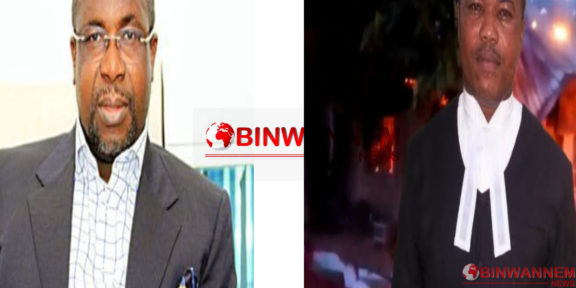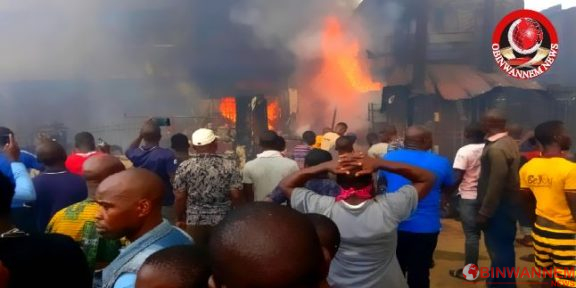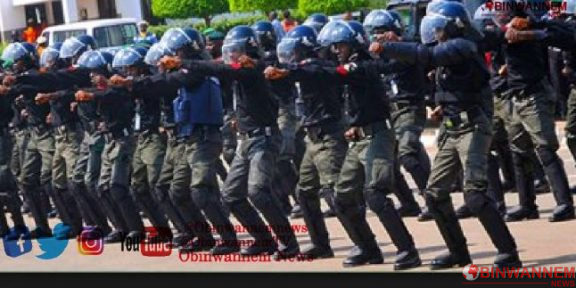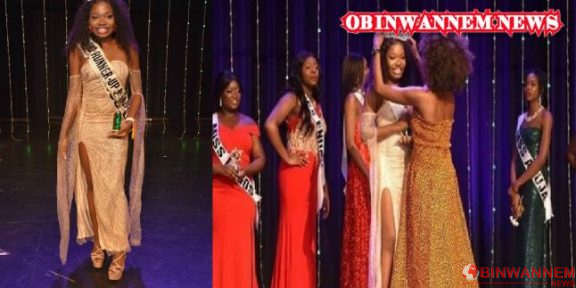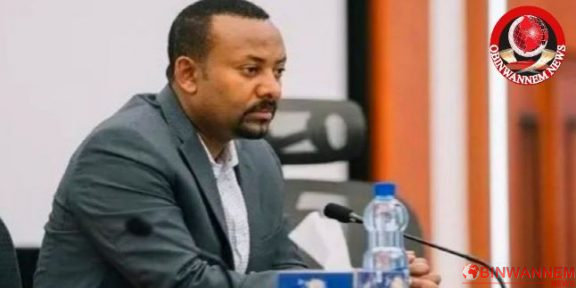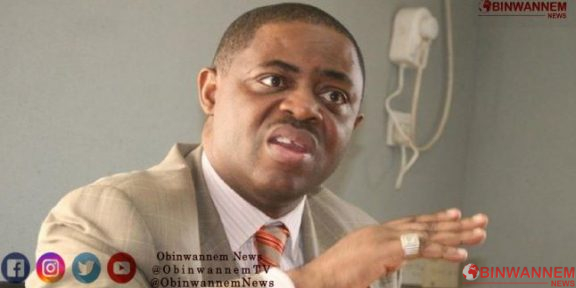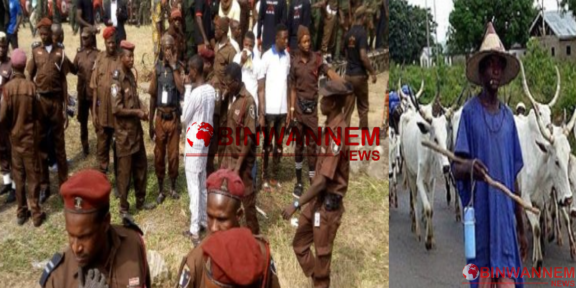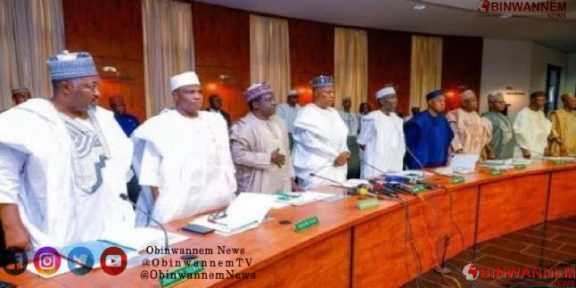I started paying attention to African magic Igbo recently and it dawned on me that the Igbo movie producers have succeded in throwing the Igbo man in a high level of identity crises with their satirical displays of the Igbo culture.
I have watched with awful countenance how the movie makers confuse the roles of the Igbo traditional (native) doctors. There are different classes of the Igbo doctors; each one has their peculiar roles and functions.
The traditional priest, Eze, is the highest spiritual order in Igbo land. There are hierarchy in this order. There are major priest, and minor priests. Every community or clan had a ‘most high priest,’ Eze Ani (the priest of the land). People sacrificed to Eze Ani for harvest. However, every clan had kindreds; every kindred, a shrine. Every shrine always had a priest.
Some of the major priests in Igbo land (my focus on Anambra) are Idemili, Ọ̀gwụgwụ̀, Agbala etc. Every community shrine in Igbo has an Eze or onye na-akpọ Alusi (the keeper). So, as a matter of essence, when the Nigerian movie makers (Nollywood) are talking about a communal shrine, an Eze character should be portrayed.
An Eze, the priest, has totally nothing to do with charms. The priest would never lie, nor take what the deity does not instruct them. When one is sick, they do not visit the priest. In the same likelihood, the latter are not to be consulted when one wants to hear from their (dead) ancestors.
The duty(ies) of the priest is to observe the rules of the deity, and always speak the truth in all circumstances. The sanctification of the land is done by them, they also prepare the people for festivals. In times of conflict, they listen to the gods and convey the divine message to the people. They trust the deity would protect them.
Onye Afa, the Diviner , is in the category known as ‘Ndị Agwu’. They are special people selected by the gods. They do not represent any community deity. Their calling is private. They are endowed with magical powers. If you want to know what is wrong in your family, you visit them. They could tell you that your great great grandfather is angry. They could literally ask you for the chest of a termite. The diviners are not the priests. There are genuine diviners, however, this group could be infiltrated by quacks. They are the sect that demand white fowl before consulting the spirits.
Then comes the ‘Dibia,’ loosely translated to a healer. Doctors are translated as ‘Dibia Oyibo’ in Igbo. Dibia is under the category of Ndi Agwu. Their powers are inherent – also discribed as “ọ natalu Chi” (power inherited directly from God). Anyone can become a dibia if his Agwu is destined to be a Dibia.
They metaphorically speak with roots, herbs, and grasses. There are good, and there are quack ndi dibia. And because there’s no school for Agwu, it is difficult to know who was really called by Agwu.
In Chinua Achebe’s ‘Arrow of God,’ there existed three spiritualists; Eze-Ulu (the priest of Ulu), Eze-Idemili (the priest of Idemili). None of the priests were interested in anything concerning individuals. They were busy checking the new moon, the harvest, and protecting the’ sacred python’. Then, there was onye Afa that performed a ritual when EzeUlu’s son got married. The onye Afa that took a fowl. EzeUlu was the greatest priest in the land, but he had to invite onye Afa for this special function.
Then, towards the end of the book, there was an old wealthy man that fell sick. In that book, the children of the man went to the next community to bring a strong Dibia that went to the extent of using guns.
In is worthwhile to note, in the lead of colonial times, there were no ‘political Eze,’ Warrant Chief, High Chief, et al. The colonialists fashioned and sold the ‘Chief’ narrative in order to authenticate the enslavement of Igbo people.
Little wonder, when the colonialists offered EzeUlu the position of the Warrant Chief, he, due to integrity, rejected it and was imprisoned for months.
Nonetheless, in our contemporary society, Eze, traditional priests have been replaced with Warrant Chiefs; hence, the name Eze is maintained till today – that which you call your Eze Obodo or Igwe, who celebrates Ofala and bless the land during new yam festivals. These are part of the functions of a traditional priest. He will never visit you nor bury charms in your farmland. Eze, the Traditional Priest, cannot plan any evil against his subjects, his fundamental duty is to protect the people.
The traditional priest, Eze, both present as warrant chiefs or originally as the custodian, is the spiritual head. He’s like the father to everyone and must be honest and pure.
An Igbo priest is characterized by dignity; highly esteemed to know that son of Mr A or B is progressing.
The Igbo traditional priests are heroes and leaders in their own functions and are well respected among their people. The African magic Igbo depiction (misrepresentation) of Christian priest with pastors is false.
Ifesinachi Nnabugwu reporting, Obinwannem News


